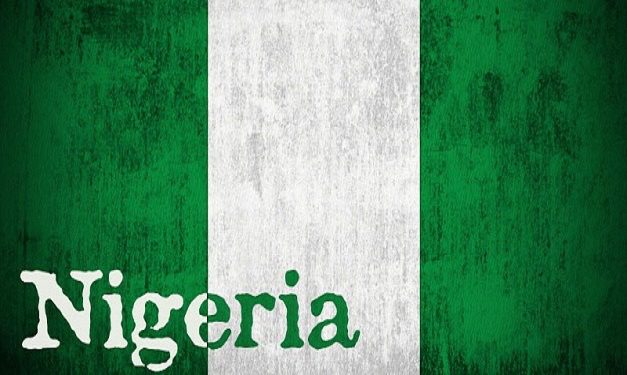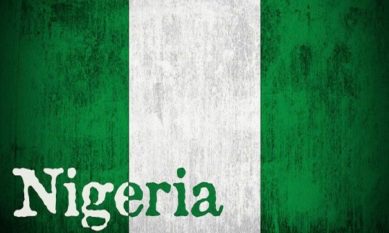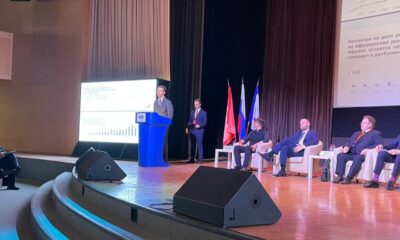National Issues
NIGERIA PRESENT WOES: THEIR ROOTS -By Chinedu Vincent Okoro


There are many woes bedevilling Nigeria today, including corruption, insecurity, poverty and so on. Many people have said and have also written numerous articles concerning the ugly situation. Some, through their writings and other means, have levelled the situation on the present government under the headed by Dr. Goodluck Ebele Jonathan. The key question is, is it true that the present government brought all these problems to this country? This is the question you will not fail to answer after reading this piece. Therefore, it is important to x-ray the different problems as a separate subheading for the case of clarity.
CORRUPTION IN NIGERIA
The word ‘corruption’ is derived from the Latin verb ‘rumpere’, meaning ‘to break’. Corruption has been given different meanings by numerous scholars, writers, etc. According to Lipset and Lenz (2000:112-114), corruption is the effort to secure power or wealth through illicit ways and for private gains at the expense of the masses; or the misuse of public power for private benefit. In accordance with the above, a professor of politics, precisely Morris, writes that corruption is the illegitimate use of public power to benefit a private interest.
Corruption is as old as Nigeria, probably older. However, the coming of the colonial masters marked the genesis of modified corruption in Nigeria. May I ask this question: Is Imperialism a corruption? I know that many people will find it difficult to answer this question without first having a clear picture of what imperialism is all about. Imperialism, according to Daniel Offiong (1980) is a monopolistic privilege and preference, extortion of raw materials, forceful taking of territories and enslavement of local populace, etc. Broadly, imperialism is the economic domination, exploitation, oppression, subjugation, suppression of a weaker country by a stronger nation. Having known this, one can boldly say that imperialism is corruption in the highest order. Therefore, the initiators of modern corruption in Nigeria are our colonial masters.
Corruption in the First Republic (1963-1966)
Corruption was not left behind during this period in Nigeria. In fact, our then president, Dr. Nnamdi Azikiwe, was the first major political figure that was investigated for questionable practices. Consequently, the findings of Forster-Sulton Tribunal (1956) and Justice Coker Commission (1962) showed how the first republic politicians used their office to divert public funds and how they were engaged in embezzlement, nepotism, extortion, electoral frauds and other questionable practices. It is worthy of note that corruption was the bane of the first republic in Nigeria and ultimately led to its collapse.
Corruption in the Second Republic (1979-1983)
The second republic, under Alhaji Shehu Shagari, was synonymous with corruption. During that political era, corruption thrived unabated. This led brought about the military intervention in 1983 by the General Mohammadu Buhari-led junta.
Corruption in the Third Republic (1993)
This was a period of Interim National Government led by Chief Ernest Shonekan. The monstrous cankerworm called corruption was still rampant under this brief dispensation. Due to the high level of corruption in the country, the then minister of Defence, General Sani Abacha swept off the government in a military coup which he tagged ‘a coup of necessity’. Before we proceed to the fourth republic, let’s to a look at corruption during the military era in Nigeria.
Corruption under Military Rule
An excerpt from the opening paragraph of the broadcast that marked the genesis of military rule in Nigeria by Late Major Chukwuma Kaduna Nzeogwu is as follows: “The aim of the Revolutionary Council is to establish a strong united and prosperous nation, free from corruption and internal strife”. What I want to point out from this excerpt is that the reasons given for the military interventions in Nigerian politics were centred on eliminating corruption. It is therefore appalling that all the successive governments of this country have boldly printed corruption tags on them. The military juntas which claimed that their interventions were to curb corruption perpetrated by the civilian administrations soon found themselves swimming even deeper in the same murky water of corruption. They looted, embezzled and misappropriated public funds so much that Nigeria’s economy has remained tottering till date as a result.
Corruption in the Fourth Republic (1999 till date)
This is another period of democratic governance in Nigeria (including the present-day government) during which corruption has continued to rear its ugly head. Though, the first government under this democratic dispensation (1999 – 2007) led by Chief Olusegun Obasanjo, took certain measures aimed at eliminating corruption through the introduction of Independent Corrupt Practices and Other Related Offences (ICPC) in 2000 and Economic Financial Commission (EFCC) in 2002, corruption remained undefeated. Corruption still persisted during the short-lived government of late Alhaji Umaru Musa Yar’adua. He also tried within his powers to fight corruption through the introduction of Anti- Corruption Revolution (ACR) in 2008, all to no avail. The present government, led by Dr. Goodluck Ebele Jonathan, has also been engaged in anti corruption war since its inception. It is important to examine the Corruption Perception Index (CPI) report from Transparency International (TI), which is a global anti-corruption watchdog. Their CPI indicator of public sector corruption offers a yearly snapshot of the relative degree of the corruption problem by ranking countries from all over the globe.
In the 1996 study of corruption indices by Transparency International (TI)and Goettingen University, Nigeria was ranked the most corrupt nation among 54 countries under study, and Pakistan second most corrupt. In 1998, the TI surveyed 85 countries and Nigeria ranked 81st. In 2001, Nigeria was ranked 90th out of 91 countries studied (i.e. second most corrupt nation country in the world), with Bangladesh coming first. In the 2012 report of TI, Nigeria was ranked 139th out of 176 countries surveyed. In the 2014 report, Nigeria was ranked 136th alongside Russia, Cameroun, Iran, Kyrgyzstan and Lebanon, out of 174 countries evaluated. Transparency International, in their commentaries on the 2014 report, said that the survey of the 174 countries was based on how corrupt their public sector was presumed to be. The measurement was based on a scale of 0 to 100 with a score of 0 perceived “highly corrupt” and 100 “very clean”. Nigeria was ranked 136th with an index score of 27 (less transparent).
The conclusion I would draw from the above reports is that the present government is really trying in the fight against corruption in Nigeria. The TI reports have indeed testified to it. Also, we should be clarified that corruption can never be entirely eliminated in Nigeria or any other country in the world. Anybody who thinks it can be completely eliminated in Nigeria is only swimming in fantasy, because it has eaten deep into the fabrics of the society. Yes, it can be reduced, but not eliminated.
INSECURITY IN NIGERIA
Insecurity has been a major problem the world at large is battling with. Nigeria is not left behind in this fight. The problem with many Nigerians is that they have reduced insecurity to terrorism alone. Are crimes like kidnapping, armed robbery, rapes, etc. not forms of insecurity? Yes, they are, and they have always been there for as long as anyone could imagine.
Is terrorism in Nigeria traceable? The answer is yes. It is a historical fact that Maitatsine Sectarians brought terrorism to this country. Maitatsine sect was founded by a man called Mohammed Marwa, who hailed from the northern part of Cameroun. He later moved to Kano, Nigeria in I945, where he founded the Maitatsine Sect and had over 6000 followers. Marwa’s major aim for founding this sect was to eliminate everything that represented western interest and culture in Nigeria. In fact, this Sect was the headache of the past Nigerian leaders from the 1960s to the 1980s. You can imagine how long it took the government of the time to fight this sect and how difficult it was.
The present Boko Haram insurgency has made many Nigerians to be making all sorts of negative insinuations. They even ask questions like, if the Maitatsine sect could be annihilated in the 1980s, why not the Boko Haram? Boko Haram (meaning ‘western culture is evil’), which is wrecking havoc in Nigeria today, was founded by Yusuf Mohammed in 2002, with the aim of Islamizing Nigeria. Just like the Maitatsine sect, the Boko Haram has equally been kicking against western cultures. My question now is, is there any connection between Maitatsine Sect and Boko Haram? The truth of the matter is, if indeed Maitatsine was entirely wiped out from Nigeria, Boko Haram would not have surfaced in this country in 2002. Frankly speaking, Boko Haram is the modernized Maitatsine Sect. The government that claimed to annihilate Maitatsine should answer the following important question: Where was Musa Makaniki, the second-in-command of Maitatsine, who took over from Marwa after the purported annihilation of the sect? It was in the year 2004 that the Nigeria government found Makaniki in Cameroun. Don’t you think that he might have been training and equipping some people to avenge Marwa’s death and also pursue their earlier vision? Reflecting on the initial stage, when Boko Haram was founded, they were not terrorizing Nigerians the way they are doing now. The spate of terrorism which now characterizes the sect began from the moment the Late President Yar’adua took seriously ill. Taking a look at statistical records of their attacks in Nigeria between 2009 and the beginning of 2013, you will notice that Boko Haram is responsible for over 1000 deaths of innocent citizens and as the day goes by, the attacks have increased. Some people have tried to give the Boko Haram insurgency a religious coloration. This, however, makes the following question imperative: If Boko Haram was indeed fighting a religious cause, why their ungodly attack at the Central Mosque in Kano on 28th November, 2014 that killed 120 innocent Muslims? Mere looking at this, should we say that Boko Haram, from 2009 till date, has been fighting a religious cause or a political cause?
Many people have said a lot of things about the present government not doing much to end the Boko Haram menace in Nigeria. Aren’t we aware of the state of emergency declared on the 14th of May, 2014 by President Goodluck Jonathan in Borno, Yobe and Adamawa states to check the excesses of Boko Haram? Are we also unaware of the 2014 President Goodluck’s amnesty offer to the sect, just as late President Yar’adua did to appease the Niger Delta Militants? But the sect bluntly turned down the amnesty offer and continued with their fight, which obviously is for nothing else but to pull down the Goodluck Ebele Jonathan government, which has actually been their ulterior motive, and they are doing so in league with their internal and external collaborators. We all are also aware of the allied forces from U.S.A, UK, France, etc. that joined the Nigeria government to put an end to the Boko Haram menace. What is the outcome of these efforts by the government and the international intervention? Have the Chibok girls been found? Have they succeeded in ending the Boko Haram insurgency in Nigeria?
Permit me to sound religious here, if this battle must be won, I don’t believe it will be fought with mere physical weapons alone. In fact, there has to be a visible spiritual aspect of the war now. That is why the Christians and Muslims – everybody – should put the Boko Haram issue at the top of their daily prayer requests to God (Allah) so that He will come to our rescue. We should stop blaming the government on this issue because the government is really trying.
POVERTY IN NIGERIA
The word “poverty” is gotten from an old French word “poverté” (now “Pauvreté”). Poverty is defined as the state of one who lacks a certain amount of material possessions or money. According to World Bank, ‘any person that earns one dollar per day, or less in any country is “very poor”, which means that the person cannot afford to purchase even the most physiological needs, according to Maslow’s hierarchy of needs. One dollar in this case, means a dollar a day at Purchasing Power Parity (PPP) in 1985. PPP is a way of measuring the value of currency that allows economists and poverty researchers to compare standards of living in different countries while accounting for disparities in both wages and costs of living. In general, PPP refers to the goods and services that a currency has the strength to purchase typically expressed as a “basket” or “bundle” of necessity items. Poverty can be of two types, namely; absolute poverty (i.e. the deprivation of human needs which includes food, shelter, clothing, etc.) and relative poverty (i.e. the economic inequality among people in a given country).
Poverty is neither a regional nor continental, but a global problem which its reduction has been a major goal and issue for many International Organizations such as the World Bank, United Nations, World Health Organization, etc. Poverty in Nigeria is not a new concept. Poverty has existed even before the coming of the Europeans in Nigeria. Nigerian government, after independence has taken serious measures to reduce poverty at both State and Federal levels by initiating different programmes which are shown below:
PROGRAMMES/INITIATORS YEAR
National Accelerated Food Production(NAFP) 1972
Gen. Yakubu Gowon (Millitary government)
Operation Feed the Nation (OFN) 1976
General Olusegun Obasanjo (Milltary government)
Green Revolution (GR) 1980
Alhaji Shehu Shagari (Civilian government)
Go Back to Farm 1983
Major General Mohammadu Buhari (Military government)
Structural Adjustment Programme (SAP) and 1986
National Directorate for Employment (NDE)
General Ibrahim Badamosi
Babangida(Military government)
Family Support Programmes 1993
(FSP) and The Family Economic Advancement Programmes (FEAP)
General Sani Abacha (Military governmet )
National Poverty Eradication Programme(NAPEP) 2000
Chief Olusegun Obasanjo
Poverty Alleviation through Wealth Creation 2007
(N0 7 in the seven point agenda)
Late Alhaji Musa Yar’adua
You can imagine the different poverty alleviation programs that have been introduced in Nigeria so far after independence. This will tell you that poverty is not a new thing in Nigeria and that efforts have continued to be made to tackle it. Although the present Nigeria government is working tirelessly to reduce poverty and there has been numerous programmes introduced so far such as Youth Enterprise with Innovation in Nigeria (YouWin Programme), Youth Empowerment in Agriculture (YEAP), Subsidy Reinvestment and Empowerment Programme (SURE P), etc. Why are many Nigerians behaving as if the problem of poverty surfaced only recently under the present administration? Have you ever taken time to study the poverty rates in some first-world countries? It may interest you to know that even U.S.A that are going to celebrate 239 years of independence this year are still battling with poverty. According to the overall U.S.A poverty rate report announced by U.S.A Census Bureau in 2014, the poverty rate in the U.S.A. has hovered around 12% to 15% since the 1970s. Other great countries like United Kingdom, France, etc. are also battling with poverty in their respective countries.
Okay, let’s forget that U.S.A is greater than Nigeria and compare them with Nigeria in some aspects. It is in Nigeria that a politician can own more than fifteen expensive vehicles at a time, with over thirty security personnel; these are in addition to several mansions that they also own. Couldn’t part of the money used in getting all those materials be used to better the poor people’s lives? Those that have been to the U.S.A. will agree with me that their politicians are very simple people and live simple lives. In the private sector, what many bourgeoisies tag profit is made out of exploited labour force – case where ‘monkey dey chop, baboon dey chop’. In this country, you will also see some preachers of the Gospel busy buying private jets and properties, riding expensive cars, building private schools, where thousand of their members – whose offerings, tithes and other contributions make up the funds used in building the schools – cannot even afford to send their children and wards to the same school because of the high tuition. While the preachers and their families feed fat and adorn themselves with very expensive designer wear, perfumes and jewelleries, their members are going on empty stomach and tattered clothes. It is in this country that you see a woman putting on a gold necklace worth N5 million, which is capable of feeding five hundred poor people comfortably in a year. Everybody is busy shouting and criticizing the present government as the cause of poverty in Nigeria, including those that are desperately vying for power to join the bandwagon of looters and embezzlers. Funnily, those of us who are busy accusing the government of not doing enough to tackle the problem are, in fact, the major contributors to the problem. When we collect stipends of gratification to vote the wrong people into office and praise-sing the underperforming officials, what do you expect? In that level that you find yourself currently, how many poor people have you helped to transformed their lives for better? To you that say that poverty rate in Western countries is minimal in comparison to ours, do you know the secret behind that? As a matter of fact, the fight against poverty in these western countries is a joint effort. There are more than five hundred thousand non-governmental and charity organizations individually and collectively assisting the government in the fight against poverty. Coming back to Nigeria, how many of the above organizations do we have? You can say that they are uncountable. Based on the critical analysis I personally carried out, I discovered that 85% of these organizations in Nigeria are Self-oriented and Goal-oriented. Many open a non-government or charity organization to amass wealth for personal benefits (i.e. self-oriented). The goal-oriented organizations are owned by 70% of Nigerian politicians who use it to win the hearts of their electorates to vote for them during an election. During election period, you will see them initiating the so-called “empowerment programmes”, doling out money and other materials to people to convince them and win their votes. Once their goal of winning election is actualized, the organization they opened will go on a long vacation and resume after about four years, which coincide with the next electioneering period.
Everyone reading this piece should know that poverty can never be entirely eliminated in Nigeria or anywhere else. The truth of the matter is that there are thousands of Nigerians that have made up their minds to die poor. They don’t want to work rather they expect government to come to put food on their table and spoon-feed them. When you look around, you will also see what I’m saying. Lastly, I strongly believe that, with joint effort, poverty in this country can be reduced. That is why we must come together to tackle this problem.
In conclusion, I will like to ask all Nigerians, both at home and in Diaspora to stop politicking with these problems, which are our collective problems. It is worthy to note that we can collectively fight corruption, insecurity and poverty and reduce them to tolerable minimum levels. We must learn to appreciate our country and our leaders and give them all the support they need instead of castigating them and engaging in destructive criticisms that will do our dear country no good. Change doesn’t occur instantly; it takes time to be achieved. To all Nigerian politicians, you should know that politics is a peaceful conflict and not a violent one. Indeed I get annoyed with politicians who take to spreading false propaganda against their opponents just to score cheap political goals. What are they teaching the young politicians of tomorrow? You dirty players in the political field, stop frightening the citizens with your melodrama. Let peace reign in our hearts so that this 2015 election will go smoothly, without rancour or bloodshed.
God bless Nigeria!!!!
Chinedu Vincent Okoro is a Nigerian writer and a political scientist. He is an Ambassador of words, Cesar Egido Serrano Foundation (Spain) and the President, St. Vincent Literary Forum Nigeria . His play ‘Now I know’ was published by Kingstar Digital Publishing, Nigeria. It is available online! You can connect with him on facebook, twitter, goggle+, etc.

















